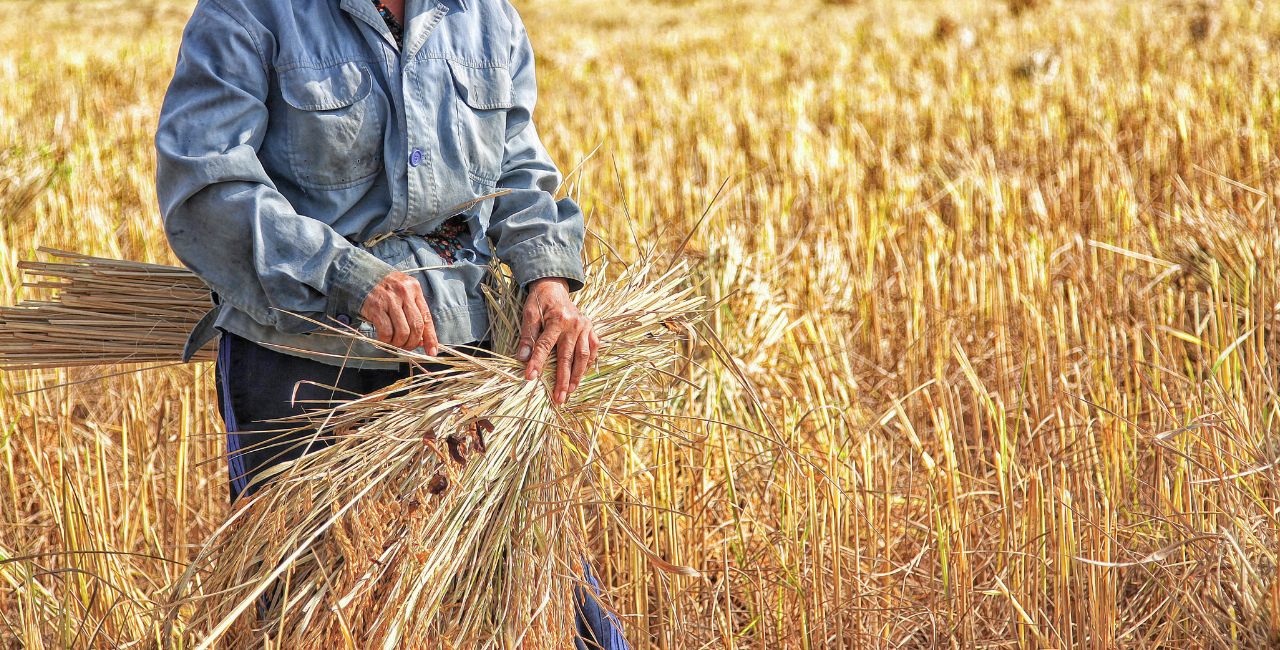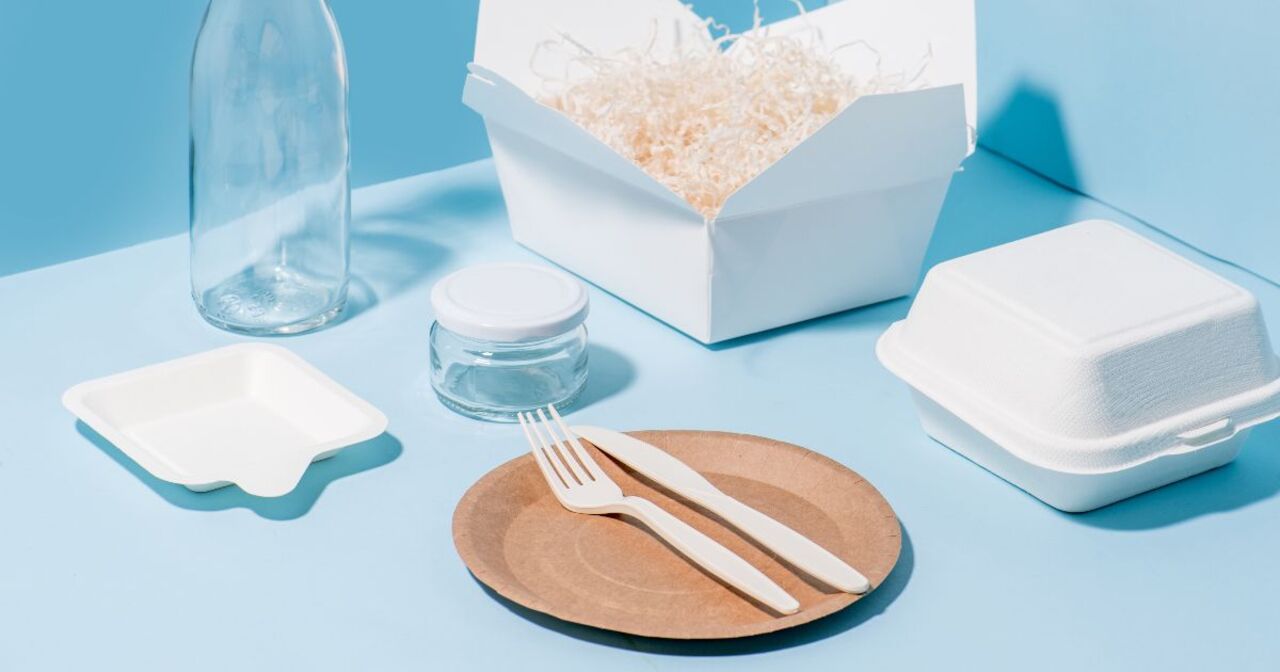From Fields to Factories: Unveiling the Versatility of Bio-Based Plastic Made from Rice
The world is witnessing a significant shift towards sustainable and eco-friendly alternatives in various industries. Among the innovative solutions, bio-based plastic made from rice stands out as a versatile and environmentally friendly option.
From Fields to Factories: How Rice waste is Used to Create Bio-Based Plastic
Rice is one of the world's most widely consumed and cultivated crops, providing sustenance for millions of people around the globe. But did you know that rice production also generates a significant amount of waste? Instead of letting this waste go to waste, innovative technologies have emerged to transform rice waste into valuable bio-based plastic.
"From Fields to Factories: How Rice Waste is Used to Create Bio-Based Plastic" explores the remarkable journey of rice waste, from the fields where rice is grown to the factories where it is transformed into eco-friendly plastic.
 Bio-based plastic made from rice using rice wastes - by-product from the rice industry that doesn't compromise global food security.
Bio-based plastic made from rice using rice wastes - by-product from the rice industry that doesn't compromise global food security.
By understanding the journey from rice fields to factories, we can appreciate the significance of transforming agricultural waste into valuable resources.
How is rice processed to turn into plastic?
Rice waste can be processed to turn into bio-based plastic made from rice through a series of steps that involve extracting and transforming its components:
- First, rice wastes are harvested from fields and separated from the actual grains of rice. The rice waste is then cleaned and dried.
- Next, they are compacted and milled into a fine powder or "rice flour". The rice flour is then mixed with various additives and chemicals to create a dough-like substance.
- This mixture is then heated and molded into the desired shape using techniques such as extrusion or injection molding.
- The process of turning rice into bio-based plastic utilizes the abundant and renewable resource of rice straw, reducing waste and providing an eco-friendly alternative to traditional plastic materials.
>>>> Learn more at: Rice Waste Transformed: Bio-composite Made From Rice as a Circular Solution for Agriculture
Versatile applications of bio-based plastic made from rice
Single-use products:
Bio-based plastic made from rice is ideal for the production of single-use products that are commonly used in our daily lives. This includes items such as rice-based plastic straws, cutlery (spoons, forks, and knives), and packaging materials like bags and containers. These products provide a sustainable alternative to conventional single-use plastics, reducing environmental impact and promoting a circular economy.
Industrial applications:
Bio-based plastic made from rice also finds applications in various industrial sectors. It can be used in the manufacturing of automotive components, such as interior panels, dashboard parts, and trims. The lightweight and durable nature of bio-based plastic made from rice make it suitable for these applications. Additionally, it can be used in electronics manufacturing, where it can replace traditional plastic components in devices and appliances.
Consumer goods:
These plastics made from rice have a wide range of applications in the production of consumer goods. It can be used for manufacturing household items such as storage containers, kitchenware, and home decor items. Additionally, rice-based plastic can be incorporated into the production of personal care products like toothbrushes, hairbrushes, and cosmetic packaging. The versatility of rice-based plastic allows it to be molded into various shapes and sizes, making it suitable for different consumer goods.

The applications of bio-based plastic made from rice are not limited to the examples mentioned above. The versatility and eco-friendly nature of this material open doors for innovation and the development of new products across different industries.
Comparison of traditional plastic and bio-based plastic made from rice in terms of environmental impact
When comparing traditional plastic and bio-based plastic made from rice, there are significant differences in their environmental impact:
- Resource consumption: Traditional plastic is derived from fossil fuels, primarily crude oil, which is a non-renewable resource. The extraction and processing of crude oil contribute to environmental degradation and carbon emissions. In contrast, bio-based plastic made from rice utilizes a renewable resource - rice straw or rice husks. Rice straw is an agricultural by-product that would otherwise be burned or discarded. By utilizing this waste material, bio-based plastic reduces the need for virgin resources and promotes resource conservation.
- Carbon footprint: The production of traditional plastic involves significant carbon emissions throughout the extraction, refining, and manufacturing processes. Fossil fuel extraction, transportation, and plastic manufacturing contribute to greenhouse gas emissions and climate change. On the other hand, bio-based plastic made from rice has the potential to have a lower carbon footprint. Rice straw is a carbon-neutral feedstock, meaning it absorbs carbon dioxide during its growth cycle. By converting rice straw into bio-based plastic, the carbon captured during the rice plant's growth can be effectively stored in the plastic material, reducing overall carbon emissions.
- Waste management: Traditional plastic poses significant challenges in terms of waste management. Improper disposal and inadequate recycling infrastructure lead to plastic pollution, littering our lands and oceans. In contrast, bio-based plastic made from rice offers opportunities for improved waste management. It can be designed to be compostable, allowing it to be disposed of in organic waste streams and facilitating the transition to a more circular economy.
Rice-based plastic provider
Looking for sustainable and eco-friendly alternatives for your business? Look no further than AirX, a provider of bio-based plastic made from rice. With a strong commitment to environmental stewardship, AirX specializes in utilizing rice, a by-product from the rice industry that doesn't compromise global food security.
By harnessing the unique properties of rice, AirX creates a revolutionary material that combines the natural benefits of rice with the strength and durability of PP (polypropylene) or PE (polyethylene). This innovative approach allows us to offer a range of high-quality and sustainable solutions for various industries.

AirX's bio-based plastic made from rice
By choosing AirX as your bio-based plastic made from rice provider, you contribute to the circular economy by reducing waste and promoting resource conservation.
>>>> Learn more at: 3 Renewable Polypropylene Recommendation to Towards A Cleaner World
Contact us
AirX is the world's first carbon-negative bio-material made from coffee grounds manufacturer.
We specialize in producing bio-based composites using recycled carbohydrates derived from by-products such as coffee grounds, coconut husk, husk, and bamboo. Our goal is to promote sustainability through the use of eco-friendly materials.
We are always here to help and provide the best service possible. If you have any questions or would like to receive advice and feedback directly from our sales staff, please do not hesitate to contact us. You can reach us through:
- Whatsapp: +84 969 742 950
- Email: [email protected]
We look forward to hearing from you!

